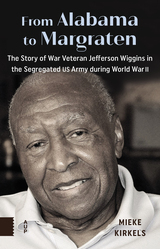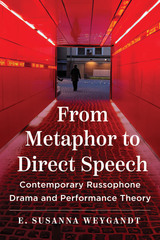9 start with F start with F
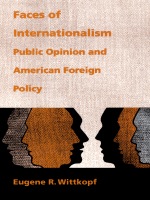
The breakdown of the “consensus” approach to American foreign policy after the Cold War years has become the subject of much analysis. This study contributes to revisionist scholarship by describing the beliefs and preferences that have emerged in the wake of this breakdown. Wittkopf counters traditional views by demonstrating the persistence of U.S. public opinion defined by two dominant and distinct attitudes in the post-Vietnam war years—cooperative and militant internationalism.
The author explores the nature of these two “faces” of internationalism, focusing on the extent to which elites and masses share similar opinions and the political and sociodemographic correlates of belief systems. Wittkopf also offers an original examination of the relationship between beliefs and preferences.
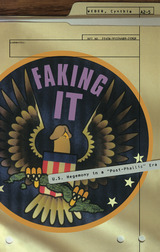
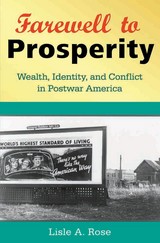
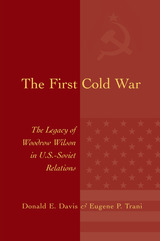
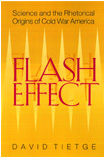
The ways science and technology are portrayed in advertising, in the news, in our politics, and in the culture at large inform the way we respond to these particular facts of life. The better we are at recognizing the rhetorical intentions of the purveyors of information and promoters of mass culture, the more adept we become at responding intelligently to them.
Flash Effect, a startling book by David J. Tietge, documents the manner in which those at the highest levels of our political and cultural institutions conflated the rhetoric of science and technology with the rhetorics of religion and patriotism to express their policies for governance at the onset of the Cold War and to explain them to the American public.
Professor Tietge details our cultural attitudes about science in the early years of the Cold War, when on the heels of a great technological victory Americans were faced with the possibility of destruction by the very weapons that had saved them.
In Flash Effect we learn how, by symbolizing the scientist as both a father figure and a savior—and by celebrating the technological objects of his labor—the campaign to promote science took hold in the American consciousness. The products of that attitude are with us today more than ever.
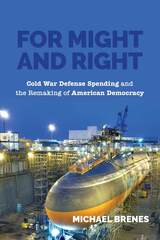
Using a rich array of archival sources, Michael Brenes draws important connections between economic inequality and American militarism that enhance our understanding of the Cold War's continued impact on American democracy and the resilience of the military-industrial complex, up to the age of Donald Trump.
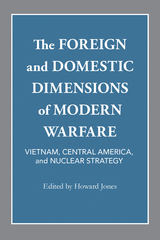
An exploration of the nuclear arms race and the dangers arising with the advent of “limited warfare”
After the development of the atomic bomb in 1945, Americans became engaged in a "new kind of war" against totalitarianism. Enemies and objectives slipped out of focus, causing political and military aims to mesh as a struggle to contain communism both at home and abroad encompassed civilians as well as soldiers. In matters relating to Vietnam, Central America, and the nuclear arms race, the domestic and foreign dimensions of each issue became inseparable. Policymakers in Washington had to formulate strategies dictated by "limited war" in their search for peace.
Contributors to this volume demonstrate the multifaceted nature of modern warfare. Robert H. Ferrell establishes the importance of studying military history in understanding the post-World War II era. On Vietnam, Colonel Harry G. Summers, Jr., gives an intriguing argument regarding the U. S. Army; George C. Herring examines how America's decisions in 1954 assured deepened involvement; and Captain Mark Clodfelter uncovers new evidence concerning "Linebacker I." On the home front, Robert F. Burk analyzes the impact of the Cold War on the battle for racial justice; Charles DeBenedetti puts forth a challenging interpretation of the antiwar movement; and James C. Schneider provides perspective on the relationship between the Vietnam War and the Great Society. On Central America, two writers downplay communism in explaining the region's troubles. Ralph Lee Woodward, Jr., fits the Nicaraguan revolution in the long span of history, and Thomas M. Leonard shows how the Reagan administration forced Costa Rica to side with the United States's anti-Sandinista policy. Finally, on nuclear strategy, Donald M. Snow offers a thought-provoking assessment of the "star wars" program, and Daniel S. Papp recommends measures to promote understanding among the superpowers.
These essays demonstrate that the making of foreign policy is immensely complicated, not subject to easy solution or to simple explanation. Despite these complexities, the central objective of policymakers remained clear: to safeguard what was perceived as the national interest.
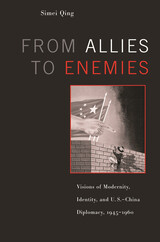
In a stunningly original work about the impact of cultural perceptions in international relations, Simei Qing offers a new perspective on relations between the United States and China after World War II.
From debates over Taiwan in the Truman administration to military confrontation in Korea to relations with the Soviet Union, Qing explores how policies on both sides became persistently counterproductive. Implicit moral and cultural values became woven into policy rationales for both China and the United States. Cultural visions of modernity and understandings of identity played a critical role in each nation's evaluation of the other's intentions and in defining interests and principles in their diplomatic relationship.
Based on American, Russian, and newly declassified Chinese sources, this book reveals rarely examined assumptions that were entrenched in mainstream policy debates on both sides, and sheds light on the origins and development of U.S.-China confrontations that continue to resonate today. Simei Qing also provides a compelling look at the vital role of deeply anchored visions in the origins of human military conflicts.

Fueling Growth examines post-World War II economic development in Japan through the prism of the energy sector. Energy, always a key problem for Japan, is an appropriate angle from which to view the changing economy and the development of economic policy during the Occupation years and after.
Between 1945 and 1960, Japan moved from a primary reliance on domestic coal and hydroelectricity to a dependence on imported oil. The debates over energy very quickly became debates over the viability and direction of the nation's entire economic strategy. Not surprisingly, given the high stakes involved, consensus on plans for economic growth was not attained automatically. Rancorous arguments, uncertainty, and ambivalence about development strategies were the precursors to the eventual forging of a workable policy. Hein describes in detail both the events in this process and the players: government officials, businessmen, labor unionists, and another, often under-emphasized contributor to Japanese postwar economic policy—the United States government, which set the parameters within which the Japanese could operate.
READERS
Browse our collection.
PUBLISHERS
See BiblioVault's publisher services.
STUDENT SERVICES
Files for college accessibility offices.
UChicago Accessibility Resources
home | accessibility | search | about | contact us
BiblioVault ® 2001 - 2025
The University of Chicago Press





